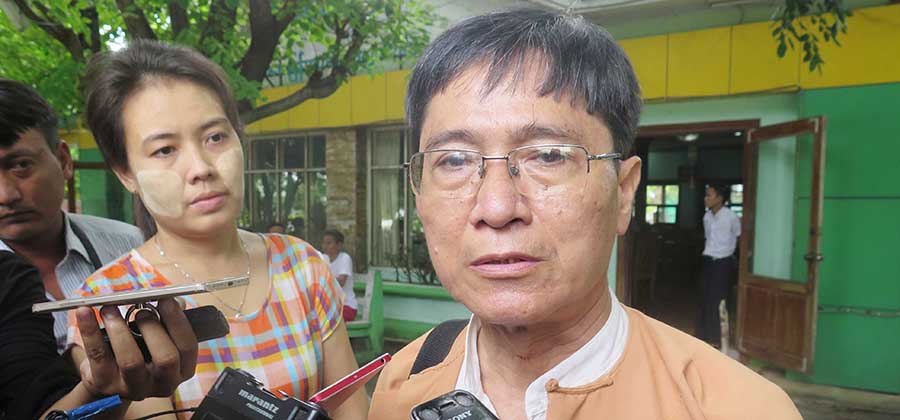YANGON — Amending the military-drafted 2008 Constitution was one of the National League for Democracy (NLD)’s main campaign promises in the run-up to the 2015 election that brought it to power in March 2016.
Constitutional reform has proven to be easier said than done for the NLD; the Myanmar military (or Tatmadaw) sees safeguarding the 2008 charter — which was drafted by the former junta and guarantees the Tatmadaw an important leadership role — as one of its main duties.
Constitutionally, 25 percent of seats in the national and all regional parliaments are reserved for the military. Additionally, the charter awards three key ministerial portfolios — Defense, Home and Border Affairs — to the Tatmadaw, which also gets to appoint a vice president.
Beyond this, the undemocratic Constitution gives the military veto power over proposed constitutional amendments and bars Daw Aung San Suu Kyi, the nation’s de facto leader, from the presidency.
Ten years after the Constitution come into effect and two years into the term of the NLD-led government, The Irrawaddy talked to NLD spokesperson Dr. Myo Nyunt about the progress of constitutional reform.
It has been 10 years since the Constitution was ratified. How much progress has been made in terms of amending it since the NLD took power two years ago?
There are concerns that our government has done nothing to change the Constitution. In fact, all the things we are doing — from mobilizing [public] support, reconciling with the Tatmadaw, fostering the public’s trust, improving their daily lives — are about constitutional amendment. It is utterly impossible to amend the 2008 Constitution without those foundations. We are waiting for the right time, while working toward national reconciliation and building substantial support among the people. In politics, you can’t just make demands all the time; you have to wait for the right time.

What are the major hurdles in this process?
People who have some knowledge [of the political landscape in Myanmar] understand what our chances of success would be if we attempted to change the Constitution now. Under current circumstances, we are not running off at the mouth about constitutional change. But we have never abandoned our mission to reform the Constitution. We will never step back. I mean, we have been consistently doing things that would facilitate constitutional amendment.
State Counselor Daw Aung San Suu Kyi has prioritized the peace process since the NLD took office. Earlier, however, she talked a lot about amending the Constitution. Has she issued any instructions regarding constitutional reform?
When the time is right, we will publicly discuss constitutional amendment. But for now we are not, as we don’t think it is the right time and doubt it would be successful. There has been no separate instruction regarding the Constitution recently. But we [the NLD] maintain it as a key policy.
You said the NLD has consistently worked toward laying the groundwork for constitutional amendment. Reconciliation with the military is part of this process. What else are you doing?
The peace process, on which we are working, is also important for constitutional change. To the extent that the peace process is successful, constitutional reform will be speedily achieved.
It is generally assumed that constitutional change would be unsuccessful if attempted now. How do you plan to move beyond this state of affairs?
The most important thing is [to secure] the overwhelming support of the people. In fact, the Tatmadaw [the Myanmar military] was also born of the people. Constitutional change will be successful on the day when all the respective civil services born of the people decide that the Constitution must be changed.
Before the 2015 general election, the NLD campaigned on a vow to amend the Constitution. Many hoped to see it materialize. What is your message to these people?
The public has very high expectations of us; we know that. We are doing things in a consistent way. I would like to say that we never abandon our election pledges.
Many believe the constitutional crisis remains a major barrier to the country’s democratic transition. What do you think?
Yes, it does. Without changing the Constitution, we can’t build a genuinely democratic country. Without real democracy, we can’t adopt a federal system.

















